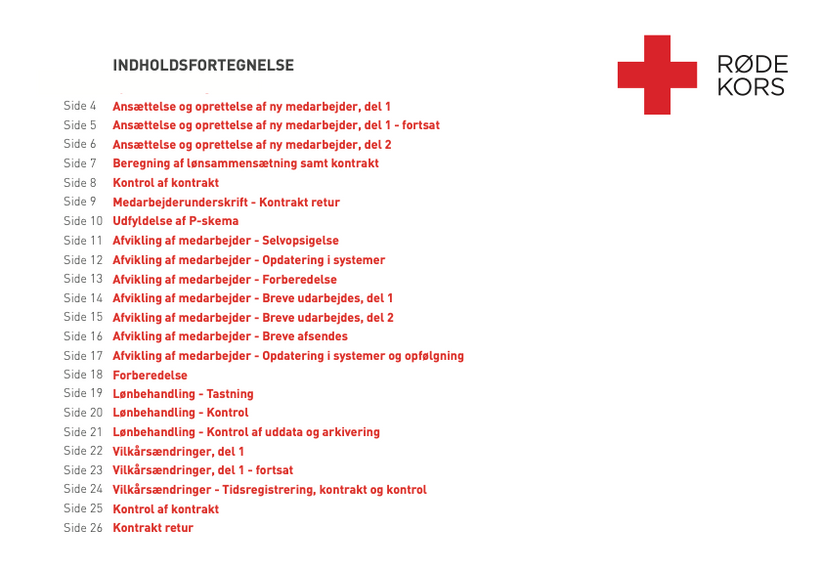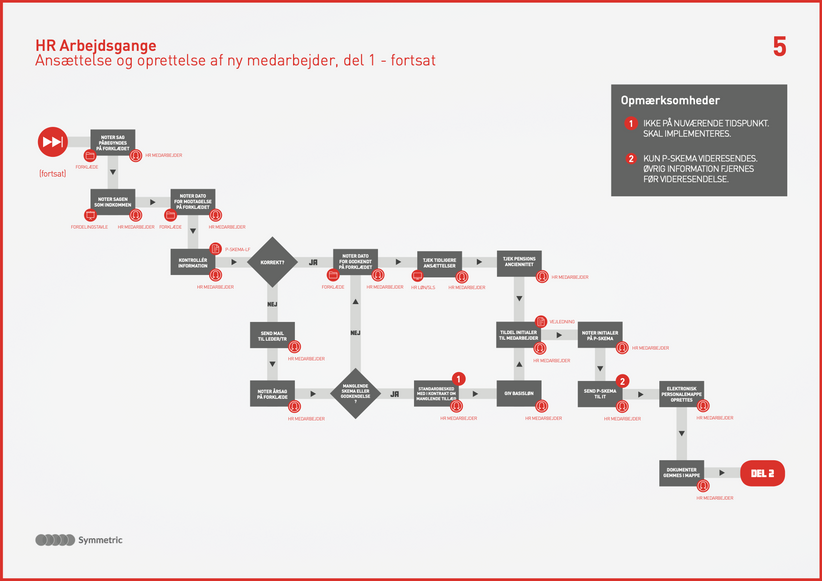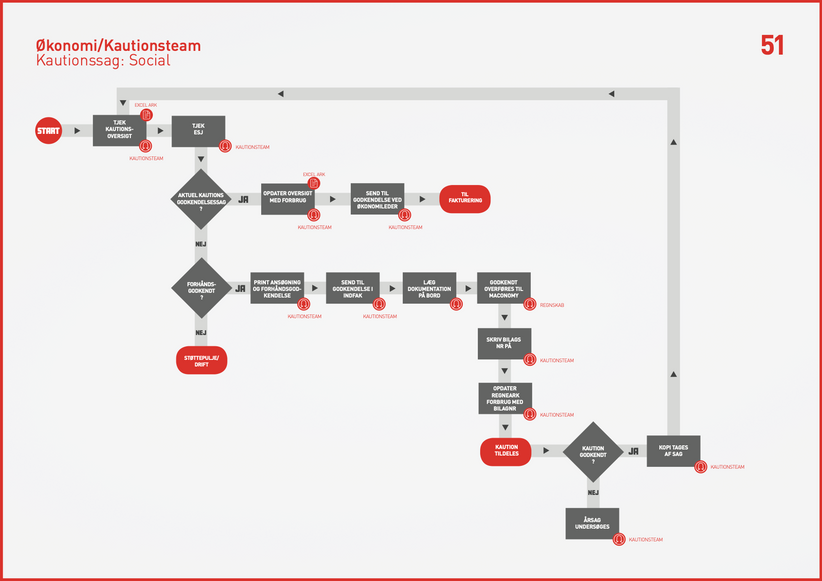

9 January 2023
BUSINESS PROCESSES / SERVICE DESIGN
Mapping, analysis and design of shared business processes and services.
RED CROSS, DENMARK
The Challenge
- No collaboration, everyone for themselves.
- No shared agenda.
- No common understanding of painpoints.
- No interdepartmental documentation.
The Result
- New Business Processes.
- Better work environment.
- Coherent workflow.
- Transparency between departments.
- Implementation strategy.
"Symmetric Sammetric did an amazing job at visualising our business processes and re-designing them together with us. It was a very enlightening experience to see the different viewpoints and agendas come together in boxes and flow. We now have a product that we can continue to improve and work on as one organisation."
- Project Manager Helge Petersen
The client and what we did for them.
The Red Cross has run asylums since 1984. The operation takes place under contract with the state. The Red Cross is responsible for the humanitarian and practical efforts, while the immigration authorities make decisions on the specific asylum applications.
Red Cross asylum centres contain everything needed to make everyday life work: Kindergarten, school, activation and education for adults, health clinic and social support when needed. Committed Red Cross volunteers are also responsible for a wide range of leisure activities, from games and sports to bicycle workshops and homework cafés.
The Red Cross’ asylum department is a flexible and dynamic organisation with a high degree of preparedness. During the period with many asylum seekers, they are responsible for the operation of more than 30 asylum centres. The Red Cross also takes care of health and social tasks at the departure centres.
The Red Cross’ asylum department is a flexible and dynamic organisation with a high degree of preparedness. During the period with many asylum seekers, they are responsible for the operation of more than 30 asylum centres. The Red Cross also takes care of health and social tasks at the departure centres.
Our first task was to map out the “as-is” workflow and business processes to identify pain points and create a common understanding of work across multiple stakeholders and departments.
Drawing room and internal service
Purchasing
Deposits
IT
Budget
Economy
Our goal was creating good relationships between technology, people, organisation, and physical framework (asylum centres) to prepare for a ESDH system and re-organise internal/external workflow. With a strong focus on information sharing and information flow to avoid lost information or double registrations. The goal was to make sure the relevant person had all information needed in as few steps as possible. Creating transparency and interdepartmental compatibility. In other words, to break down silos and create a network model and flow.
Our primary method was workflow analysis and service design. This method ensures a focus on relationships and networks, just as we use the method to analyse and design new workflows that ensure consistency between organisation and technology. In our analyses and design activities, we used both qualitative and quantitative methods as well as various design methods.
The following tasks were undertaken:
Preparation and review of background material
Interviews, meetings, observations and workshops with stakeholders
Documentation of business processes for the individual departments
Identification of pain points and redundancies.
Design and mapping of the “desired” business processes and information flow”
Analysis of risks, necessary roles, politicise and controls to make it happen.
Documentation of future state business processes to ensure a collaborative relationship.
Implementation strategy and clarification meetings with stakeholders
The result was a common understanding of business processes and their inter-relations with a strong focus on collaboration. The documentation was handed over to the organisations with recommendations and an implementations strategy.




















